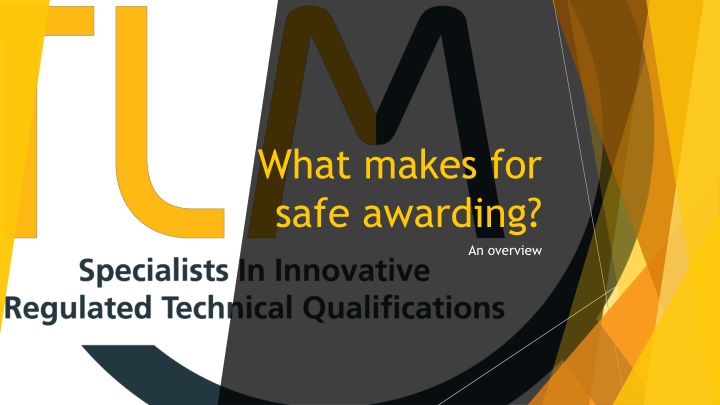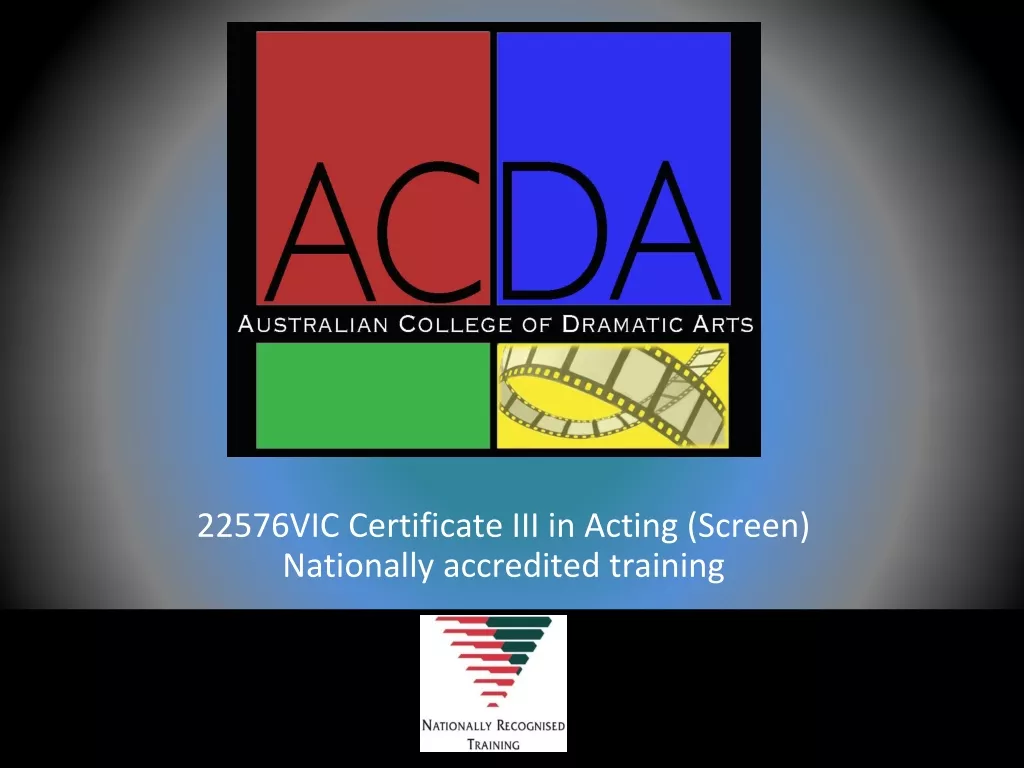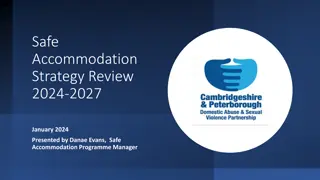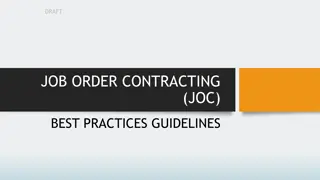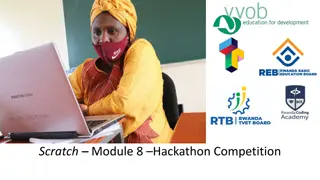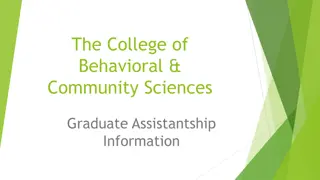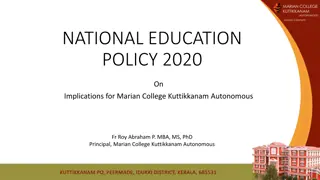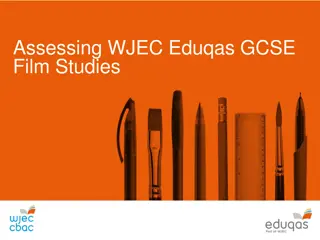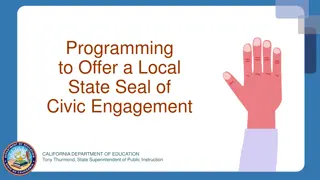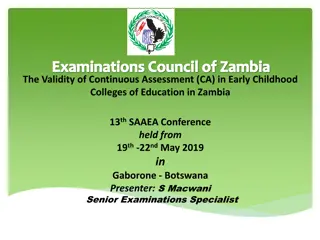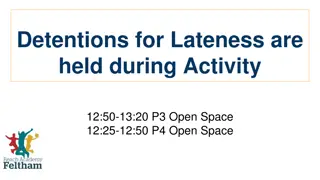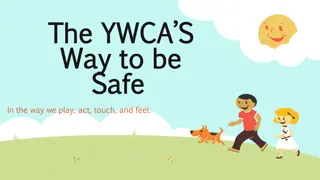What makes for safe awarding
This overview delves into the essentials of safe awarding practices, highlighting key factors and considerations to promote fairness and transparency in the process. From risk assessment to compliance measures, this guide sheds light on creating a secure environment for conducting awards efficiently.
Download Presentation

Please find below an Image/Link to download the presentation.
The content on the website is provided AS IS for your information and personal use only. It may not be sold, licensed, or shared on other websites without obtaining consent from the author.If you encounter any issues during the download, it is possible that the publisher has removed the file from their server.
You are allowed to download the files provided on this website for personal or commercial use, subject to the condition that they are used lawfully. All files are the property of their respective owners.
The content on the website is provided AS IS for your information and personal use only. It may not be sold, licensed, or shared on other websites without obtaining consent from the author.
E N D
Presentation Transcript
What makes for safe awarding? An overview
Malpractice Malpractice is defined as any deliberate activity, neglect, default or other practice that compromises the integrity of the assessment process, undermines public confidence in TLM qualifications, and/or impacts the validity of assessment outcomes. Malpractice may include a range of issues from the failure to implement approval criteria, to the deliberate falsification of records in order to claim certificates.
Malpractice examples Two of the clearest examples of malpractice are: cheating, or facilitating cheating, in an assessment; and attempting intentionally to manipulate a result so that it does not reflect the Learner s actual performance in an assessment.
Things that can go wrong Work is not Learner s own plagiarism Copying from internet sources Copying between Learners Artificial intelligence Cheating invigilated assessments
Remote arrangements Remote invigilation Remote invigilation can be one or both of live supervision or after-the-fact supervision of a Learner completing the required assessment tasks. The invigilator is in a different location to the Learner. It ensures that the Learner completes the assessment under the required conditions so that the awarding organisation can assure itself of the validity of the assessment and secure the award of the qualification. The invigilator is not assessing the Learner.
Remote working and authenticity Learners can be asked to show the room in which they are taking the assessment beforehand. And they can be asked to hold photo ID in a specific space so that a photo of the Learner with their ID can be taken and stored. Use of multiple cameras has also enabled awarding organisations to prevent Learners being helped by third parties. Invigilators who are well trained in identifying any irregularities in real time.
Spotting plagiarism Unusual phrasings, noticeable unevenness of style (some very sophisticated sentences followed by some amateurish ones) Concepts that seem too sophisticated for the level of the class, unclear or incorrect sources listed in the bibliography A writing style or diction choice in a particular paper that seems inconsistent with that found in other samples of the Learner s writing these are some of the signals that you might be reading a plagiarised piece of work
Spotting plagiarism One technique to detect plagiarism is to enter an unusual phrase or sentence into a standard search engine (e.g., Google) and see if a match is found A second technique is talking the work through with the Learner and discussing the content/ideas to determine the Learner s familiarity with his/her own work and its concepts.
Spotting plagiarism Free plagiarism checker - https://smallseotools.com/plagiarism- checker/ Free AI Content Detector - https://sapling.ai/ai-content-detector
Adverse Effect An Adverse Effect is defined by the qualifications regulators as any act, omission, event, incident or circumstance that introduces prejudices to Learners or adversely affects; The ability of the awarding body to undertake the development, delivery or award of qualifications in a way that complies with its Conditions of Recognition; The standards of qualifications which the awarding body makes available or proposes to make available; or Public confidence in qualifications.
Policy Approved Centres must have their own malpractice/ maladministration policy, the implementation of which may be audited at Centre monitoring visits and confirmation sought at training workshops. Guidance on the policy is included in the Centre Handbook.
How TLM spots malpractice/ maladministration TLM recruits, inducts and trains our staff, contractors, Centres and associates so that individuals involved in the development, delivery and award of our qualifications, are aware of malpractice/maladministration risks, and the effects.
Process for tackling malpractice/ maladministration Allegations of malpractice and/or maladministration must be raised directly with TLM s Responsible Officer who will not disclose, and will seek to protect, the identity of any whistle blower. As much detail as possible should be submitted along with any available supporting evidence, i.e.: Date(s) and time(s) of incident(s) Person(s) involved Nature of incident(s) Findings of any Centre investigation TLM will make an initial response/ acknowledgement in writing within 10 working days.
Process for tackling malpractice/ maladministration
How TLM acts after investigating malpractice/maladministration Following the investigation, a draft report will be produced that the parties involved will be invited to check for factual accuracy and comment upon. Upon receipt of the final version of the report an appeal may be made regarding actions imposed. Details of how to appeal are included in the TLM Appeals Policy.
Actions taken after investigation Actions will be proportionate to the gravity and scope of the occurrence and may include the following: The development and implementation of action plans to prevent re-occurrence; Suspending or removing registration for units/qualifications; Suspending or removing approval; Imposing other sanctions as appropriate.
Questions and contact details 4D-4E Gagarin Lichfield Road Tamworth Staffordshire B79 7GN United Kingdom Telephone: +44 (0)1827 305940 TLM | The Learning Machine e-mail: helpdesk@theingots.org
